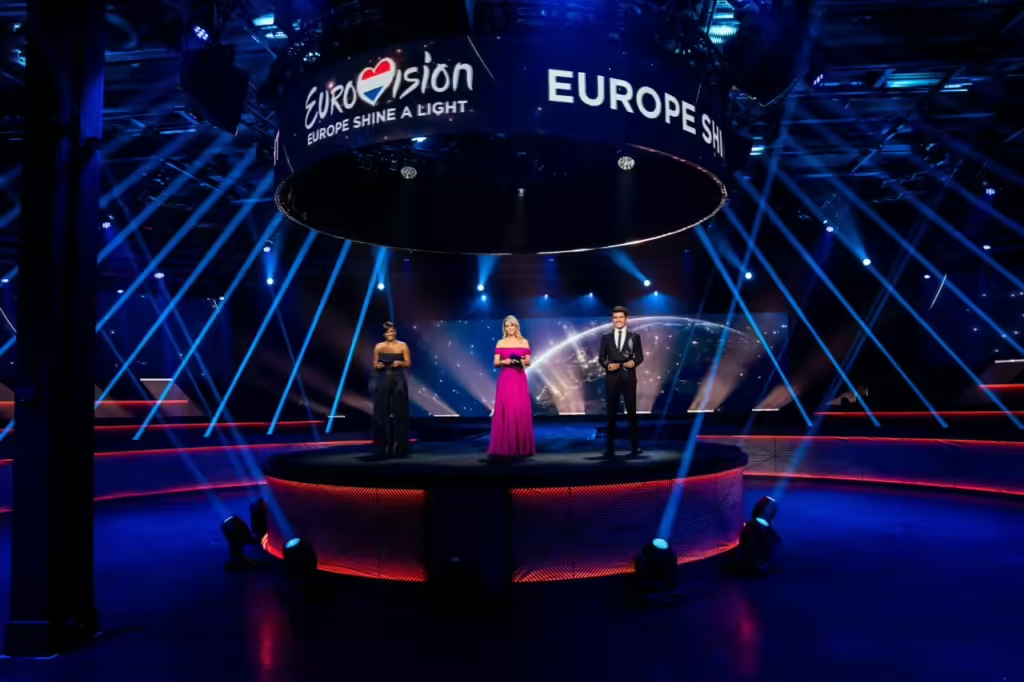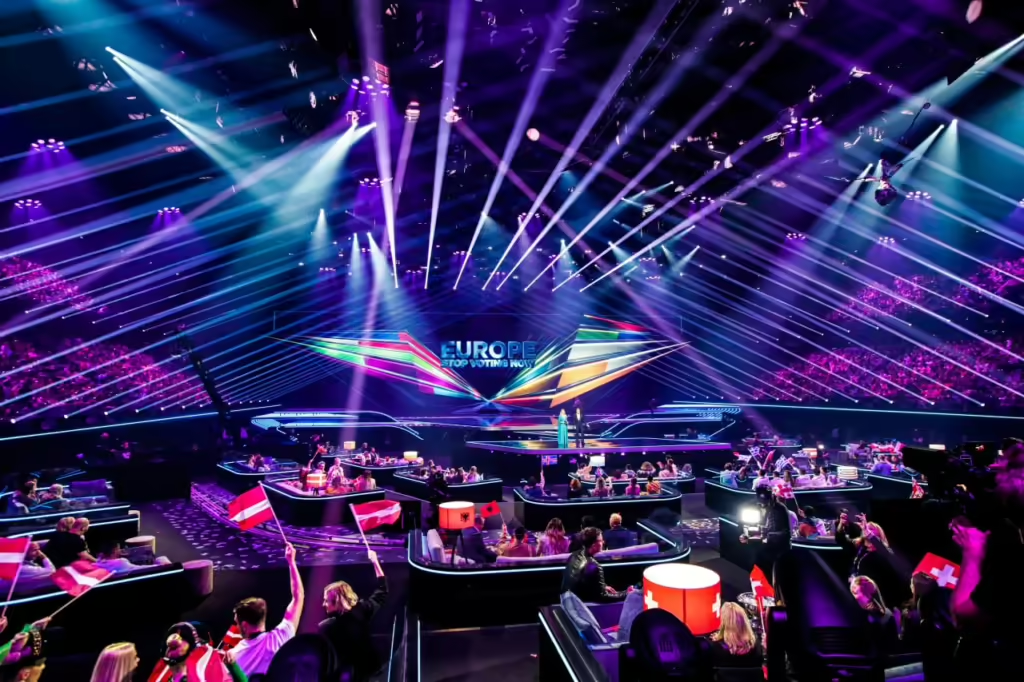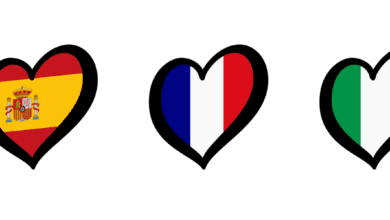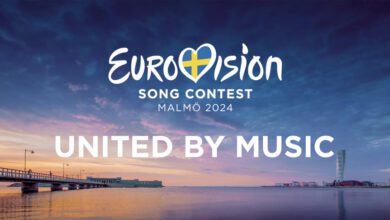Eurovision 2020: a look back at an unprecedented edition that changed the history of the contest!
The year 2020 should have been a year like any other for Eurovision, with Rotterdam as host and talent from all corners of the continent ready to perform on THE stage, in front of millions of television viewers. However, the COVID-19 pandemic decided otherwise, marking a first in the contest's history with... a total cancellation! What exactly happened and how did the EBU manage this incredible event that affected us all? We tell you all about it!
Eurovision 2020: a highly anticipated annual event

In 2019, the Netherlands won Eurovision thanks to Duncan Laurence and its title "Arcade". This victory led to the organisation of the next edition in Rotterdam, an event that promised to be grandiose. The Dutch city, renowned for its dynamism and modern architecture, spared no effort to rise to the challenge. An impressive venue was selected, the Ahoy Arena, capable of accommodating thousands of spectators.
Every year, Eurovision sparks debate among Eurofans about the potential winners and the public's favourites. For 2020, a number of songs had already won over fans and bookmakers alike. Among the favourites were :
- Daði og Gagnamagnið from Iceland with 'Think About Things': an electro pop track.
- The Roop from Lithuania with 'On Fire': an energetic performance.
- Victoria from Bulgaria with 'Tears Getting Sober': an introspective ballad.
(full list of artists and songs competing in 2020)
However, no-one could have foreseen the imminent impact of the COVID-19 pandemic...
The arrival of the pandemic
The beginning of 2020 was marked by the rapid emergence and global spread of COVID-19. In a matter of weeks, the virus disrupted daily life, travel plans and public gatherings across Europe and around the world. Governments were forced to impose strict containment and social distancing measures to curb the spread.
With the pandemic evolving rapidly, Eurovision organisers realised that difficult decisions had to be made. As the number of cases increased, it became clear that holding the event in Rotterdam in May 2020 would be severely compromised. Several options were discussed in the hope of saving the contest, while ensuring the safety of participants and spectators.
On 18 March 2020, the European Broadcasting Union (EBU) has announced the historic decision to cancel Eurovision 2020. The cancellation came as a shock to fans around the world, as well as to the artists and teams who had invested so much time and effort in their preparations. Never before in the history of the contest, which was launched in 1956, has an edition been cancelled.
"It is with a heavy heart that we have to announce the cancellation of Eurovision 2020 in Rotterdam,"
— Jon Ola Sand, Eurovision Executive Supervisor
Discussions with participating broadcasters, Rotterdam authorities and public health officials had all revealed that holding the event this year would be impractical and unsafe. Scenarios envisaging a reduced or dematerialised edition had been studied, but in the face of growing uncertainty and travel restrictions, total cancellation appeared to be the only viable option.
Reactions from artists and fans, ranging from disappointment to support
The announcement of the cancellation of Eurovision 2020 sent shockwaves through Europe and around the world. The artists who had been preparing for months, perfecting their performances to represent their country, found their momentum brutally halted. Many of the artists were devastated to learn of the cancellation live on air, shattering a lifelong dream.
Eurovision fans, who were also deeply affected, showed massive support for the artists on social networks. Thousands of messages of solidarity flooded Twitter, Facebook and Instagram, illustrating the community spirit that characterises the contest.
Europe Shine A Light
To fill the void left by the cancellation of the contest, a number of initiatives have been put in place to celebrate the spirit of Eurovision in spite of everything. On 16 May, the day on which the Grand Final was due to take place, the organisers broadcast a special programme entitled "The Eurovision Song Contest". Europe Shine A Light" . This virtual show paid tribute to the songs and artists of 2020, without competition, offering a platform for their work and unity at this difficult time. Many countries also organised their own special programmes to showcase the selected artists and songs. For example, the BBC broadcast "Come Together", a celebration of the best Eurovision songs, while Germany presented "Eurovision Song Contest 2020 - das deutsche Finale".

Which songs and artists are back in 2021?
For the 2021 edition, a number of countries have chosen to give their 2020 artists a new opportunity, particularly those who were tipped to win the cancelled competition. The rules being what they areAs a result, they had to come up with new songs for the 2021 competition.
- Daði og Gagnamagnið has been reconfirmed to represent Iceland with a new song entitled "10 Years". Their return was eagerly awaited by the Eurovision community.
- The Roop has also been selected to represent Lithuania with 'Discoteque', a new, equally energetic performance.
- Victoria represented Bulgaria once again with his song "Growing Up Is Getting Old", a new introspective creation that continued to touch fans.
- Gjon's Tears was selected for Switzerland with "Tout l'Univers", a song that helped him reach third place in 2021.
Complete list of Eurovision 2021 artists here.

The legacy of Eurovision 2020
The cancellation of Eurovision 2020 has left a lasting impact on the fans and the culture of the contest. Despite the disappointment, the cancellation of the contest has strengthened solidarity among fans, artists and organisers. The enthusiasm and mutual support has shown that Eurovision is much more than just a song contest.
The cancellation of the 2020 Eurovision Song Contest has enabled the organisers to draw some valuable lessons to ensure the contest's continued success in all circumstances. Eurovision organisers have understood the importance of preparing various scenarios for future editions, such as considering the introduction of digital formats, opening up new ways of broadcasting and interacting with fans around the world, or preparing plans for virtual broadcasts and pre-recordings, in case it is impossible to hold the event live.
The pandemic also served as a reminder of the importance of health safety when planning major events. Strict protocols have been developed to protect participants, teams and the public.
The cancellation of Eurovision 2020 will remain an unprecedented and significant page in the history of the contest. It highlighted not only the unforeseen challenges, but also the strength and resilience of the Eurovision community. In 2021 and beyond, the contest continues to adapt and shine, proving that even in the face of adversity, the music and spirit of Eurovision endure.
To find out more, watch this BBC documentary " Eurovision 2020 BBC Documentary: The Cancelled Coronavirus Year" James Newman, the candidate representing Great Britain in the 2020 competition.





